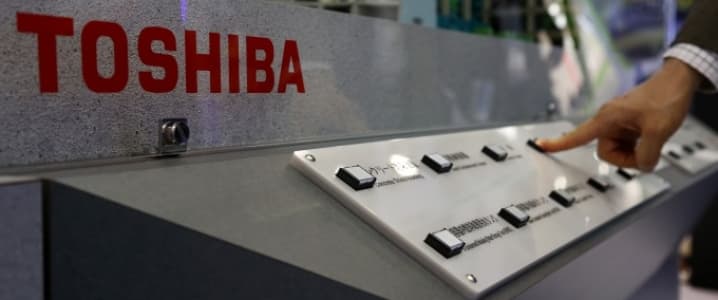As a sort of financial casino, Wall Street permits its customers to indulge in all sorts of financial risk. Short selling, for example, betting on a stock's decline as opposed to its rise. If you short at $10 and it goes to $2? Awesome. If it instead goes the other way, from $2 to $10, you just lost 5 times your principal.
But how can you lose several billion dollars, or ten times your principal investment, on a U.S. asset that you bought for $220 plus million? That's the question that Toshiba executives are asking themselves.
The goodwill write off triggering this financial commotion relates to cost overruns at two U.S. nuclear construction sites, V.C Sumner and Vogtle in Georgia.
Toshiba, a titan of Japanese industry and owner of Westinghouse Electric dropped a bombshell on the stock market at the end of December and its stock fell by one third. The bond agencies cut Toshiba’s ratings, analysts wondered if the company would have any equity left and sources claimed that Toshiba was thinking of selling its most valuable subsidiary in order to fill the hole in its balance sheet.
This announcement comes in the wake of a previous accounting scandal in which Toshiba was accused of inflating profits. After that, Toshiba seemed ready to raise more equity capital but held off. Now it looks as if the company will have to raise more money on even more dilutive terms for existing shareholders.
What prompted the sudden announcement and what does that announcement mean to the nuclear sector? Let’s go back to 2015.
In that year, Toshiba’s Westinghouse subsidiary bought Stone & Webster (S&W), the nuclear construction and services company, from Chicago Bridge & Iron (CBI). It paid $229 million in cash for S&W, and estimated that goodwill, subject to writeoff, was under $87 million, with that number to be determined by December 31, 2016. Near the end of December, Westinghouse informed its corporate parent, Toshiba that “the cost to complete U.S. projects will far surpass the original estimates...leading to a possible recognition of goodwill far exceeding the original...estimate...current estimation shows a level of...several billion U.S. dollars...." Related: Low Oil Prices Could Last As OPEC Cuts Won’t Suffice
Toshiba is one of a handful of nuclear engineering and manufacturing firms in the world. Its Westinghouse unit produces one of the approved designs (AP 1000) for U.S. construction. Toshiba also owns one of the nuclear construction sites in the UK. If a firm of this size and expertise is surprised by the cost of nuclear construction, that is not a good sign.
But from a financial perspective, if a firm of Toshiba’s size, and one of the premier nuclear engineering firms in the world, is in financial straits due to nuclear overruns, just how big and how accurate in project costing does a firm need to be to take on the risks of nuclear construction? Due to the size of the projects, no small firm can ever take them on. But will the point come when not even large firms execute a nuclear project unless an even larger entity, such as the federal government or the ratepayers over a wide area, guarantees payment of all cost overruns?
Toshiba’s difficulties may reverberate beyond Tokyo’s financial district. They call into question the ability of the most expert of firms to evaluate the risks of what has become bespoke nuclear construction. That will raise costs for new nuclear power since paying a return "of and on" capital is still its biggest cost.
ADVERTISEMENT
By Leonard Hyman and William Tilles
More Top Reads From Oilprice.com:
- World Bank: Trump To Boost U.S. Economic Growth And Commodities
- Oil Slips And Bounces Back After EIA Reports Significant Builds Across The Board
- Seismic Industry Still Reeling From Oil Price Bust


















